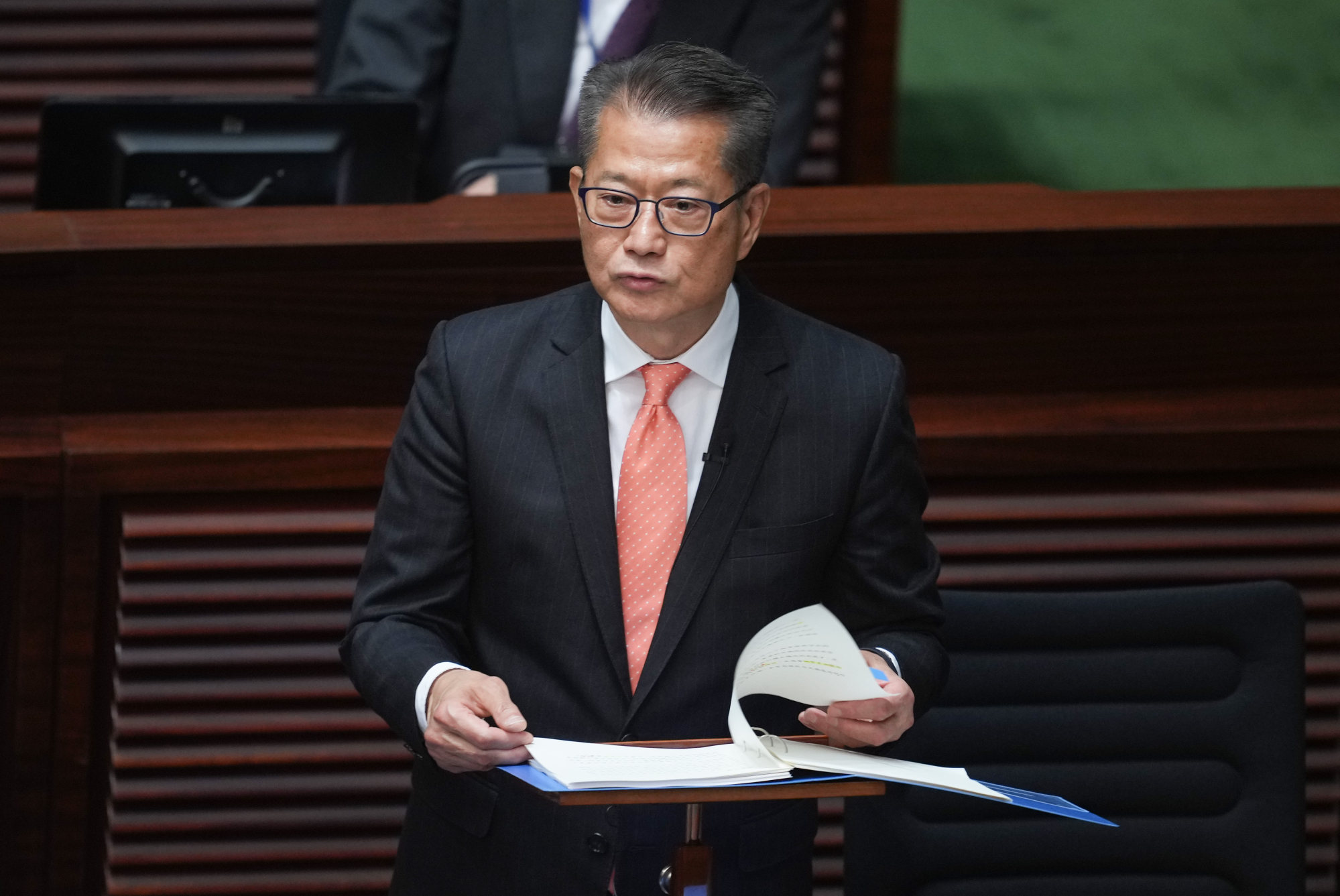
Hong Kong will delay the start of a controversial land reclamation project off Lantau Island by two to three years, the city’s finance chief has revealed, as he assured that authorities will not give up on the billion-dollar project.
Financial Secretary Paul Chan Mo-po on Friday said that the reclamation of Kau Yi Chau under the Lantau Tomorrow Vision project would serve as an important source of land supply, with the area’s strategic location connecting the west of Hong Kong Island to the planned logistics hub in Hung Shui Kiu in the New Territories.
“At the moment, Wan Chai, Central and Tsim Sha Tsui are the traditional central business districts, and the new business districts in Kowloon east are Kwun Tong and Kai Tak,” he said.
Do you have questions about the biggest topics and trends from around the world? Get the answers with SCMP Knowledge, our new platform of curated content with explainers, FAQs, analyses and infographics brought to you by our award-winning team.
“The location is very strategic in the sense that with the reclamation, we can build a bridge and railways if justified, connecting the west side of Hong Kong Island to Lantau and all the way to Hung Shui Kiu up to mainland China. This is very important in terms of logistics and spatial development.”

The finance chief’s announcement of the delay comes two days after his budget speech on Wednesday. A government insider told the Post on the same day that the reclamation project would be postponed as the city was expected to record its fourth deficit exceeding HK$100 billion.
Chan on Friday said the commencement of the reclamation project, originally scheduled for next year, would be delayed “slightly” by about two to three years.
“Over the past two years, we have received suggestions from different parties on how to put this forward, including private investment or subcontracting the whole project to private consortiums,” he said.
“If we go down that route, it may not cost that much in terms of government spending. But on the other hand, we want to have certain control over the land supply. We are trying to balance this and look into different options available to us.”
Hong Kong to record higher-than-expected deficit as revenue shrinks: Paul Chan
Chan added that the government needed to complete the feasibility studies and formulate mitigating measures for the environmental impact of reclaiming artificial islands under the Lantau Tomorrow Vision project.
The 1,000-hectare (2,471 acres) project, aimed at addressing a land shortfall and expected to house a third central business district in the city, has an estimated construction cost of HK$580 billion, with financial returns forecast at HK$750 billion.
The finance chief on Wednesday said after his budget speech that the plan would take a back seat given the “public finance position”, adding that the reclamation of Kau Yi Chau would not begin next year as scheduled.
The city’s expected deficit has ballooned to HK$101.6 billion (US$12.98 billion), leaving fiscal reserves at HK$733.2 billion, the lowest in a decade.
Hong Kong to help finance Northern Metropolis project with land exchange scheme
Chan said the government would instead focus on the Northern Metropolis scheme, a development project near the city’s border with mainland China aiming to provide housing for 2.5 million people.
He said the Lantau project was of “lower priority” than the Northern Metropolis scheme, and that the government would rely on the issuance of infrastructure bonds worth about HK$95 billion to HK$135 billion a year to finance the development.
Chan also said on the same programme on Friday that the government would reclaim brownfield land for public use, while private residential or commercial developers would be required to complete land exchange and site development within a specified time frame.
He pointed to brownfield sites in Fanling North and Kwu Tung North where land exchange was not completed within the stipulated period last year, prompting the government to begin taking back the sites recently.
“We don’t have a policy of maintaining high land value. It is our plan to continue to form more land to build a land reserve so we have a consistent and sustainable supply of land to enable our social and economic development.”
For the latest news from the South China Morning Post download our mobile app. Copyright 2024.











































